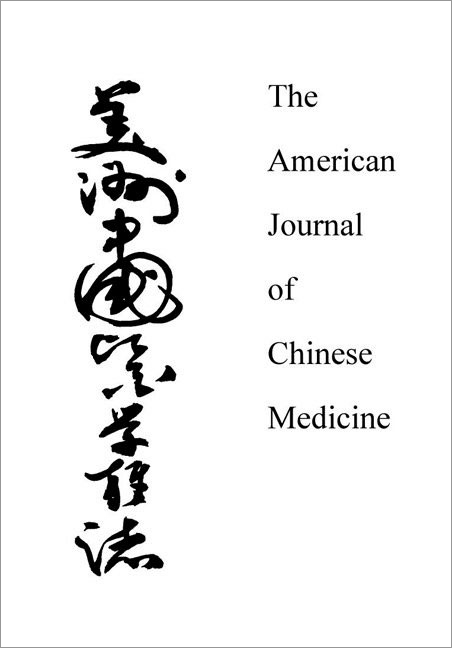Gastritis
How to submit an article:
- Registered users can submit any published journal article that has a unique DOI (Digital Object Identifier) name or link to Research Hub.
- For example, you can paste the full DOI link:
https://doi.org/10.1109/5.771073or just the DOI name:10.1109/5.771073into the field above and click submit. - The person who is first to submit a valid article to Research Hub will forever be credited for it, and every article submission earns you +6 Research Points.
Also known as: Chronic Gastritis
Published research studies are articles that present the findings of original research that has undergone a peer-review process and has been made publicly available in scholarly journals, books or other media.
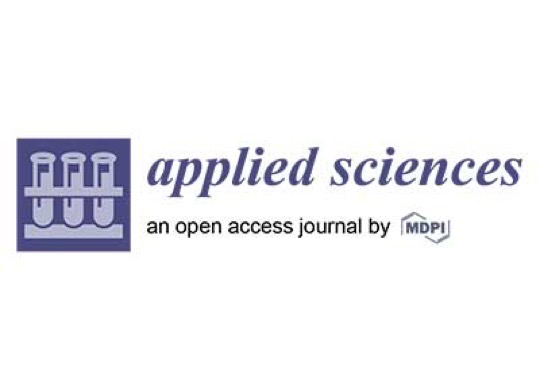
Gastroprotective Effects of Fermented Gold Kiwi (Actinidia chinenesis L.) Extracts on HCl/EtOH-Induced Gastric Injury in Rats
2022 May 23 Applied Sciences Jeon EJ, Choi JH, Lee NY, Oh HJ, Kwon HS, Kwon J
Animal Study KiwifruitFermented gold kiwi extract exhibits antioxidant properties, providing protection to the stomach lining and reducing inflammation, making it promising for treating gastritis and gastric ulcers.
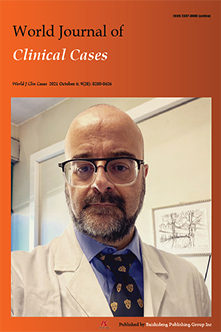
Application of traditional Chinese medicine in treatment of Helicobacter pylori infection
2021 Dec 16 World Journal of Clinical Cases Li RJ, Dai YY, Qin C, Huang GR, Qin YC, Huang YY, et al.
The antibacterial effect of TCM is relatively slow; for rapid improvement of the treatment effect of refractory H. pylori gastritis, we provide an appropriate treatment regime combining TCM and Western medicine with immune-regulatory and synergistic antibacterial effects.
Review Article H Pylori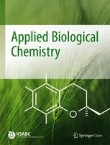
Potential and beneficial effects of Cinnamomum cassia on gastritis and safety: Literature review and analysis of standard extract
2021 Dec Applied Biological Chemistry Lee JH, Park DH, Lee S, Seo HJ, Park SJ, Jung K, et al.
Review Article Systematic Review Gastritis Chinese CinnamonCinnamomum cassia, or cinnamon, exhibits promising therapeutic benefits in combating gastritis by targeting inflammation pathways, according to preclinical studies.
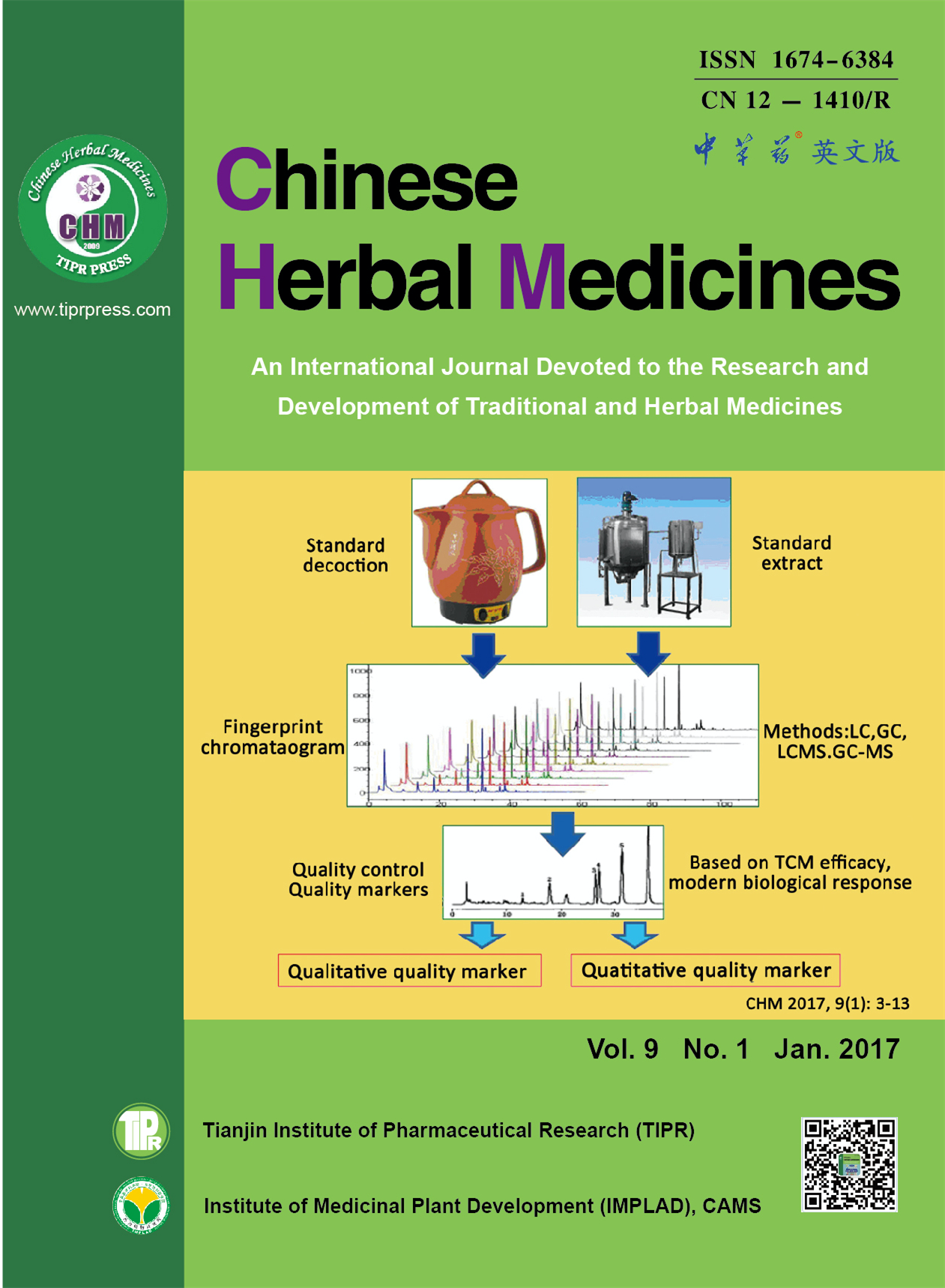
Network pharmacology unveils spleen-fortifying effect of Codonopsis Radix on different gastric diseases based on theory of “same treatment for different diseases” in traditional Chinese medicine
2021 Apr Chinese Herbal Medicines He R, Jin Z, Ma R, Hu F, Dai J
Dangshen achieves spleen-fortifying effect on gastric diseases including gastric ulcer, gastritis and gastric cancer through multiple targets in multiple pathways, especially PI3K-AKT pathway and HIF-1 pathway. It could provide a scientific basis for understanding the strategy of “Same treatment for different diseases” in traditional Chinese medicine.
Network Pharmacology Dang Shen Gastric DiseasesAn overview of traditional Chinese medicine therapy for Helicobacter pylori–related gastritis
2021 Mar 25 Helicobacter Yuli Li, Xiaoya Li, Zhoujin Tan
These research works have shown the therapeutic benefits of traditional Chinese medicine (TCM) in the treatment of Helicobacter pylori–associated gastritis (HPAG).
Review ArticleResearch insights are moderated by the Research Hub team and offer an at-a-glance overview of interesting research findings.

2022 Applied Sciences
Fermented gold kiwi extract exhibits antioxidant properties, providing protection to the stomach lining and reducing inflammation, making it promising for treating gastritis and gastric ulcers.
Animal Study Kiwifruit
Gastroprotective Effects of Fermented Gold Kiwi (Actinidia chinenesis L.) Extracts on HCl/EtOH-Induced Gastric Injury in Rats
Jeon EJ, Choi JH, Lee NY, Oh HJ, Kwon HS, Kwon J

2021 Applied Biological Chemistry
Cinnamomum cassia, or cinnamon, exhibits promising therapeutic benefits in combating gastritis by targeting inflammation pathways, according to preclinical studies.
Review Article Chinese Cinnamon
Potential and beneficial effects of Cinnamomum cassia on gastritis and safety: Literature review and analysis of standard extract
Lee JH, Park DH, Lee S, Seo HJ, Park SJ, Jung K, et al.

2020 PLOS One
Ban Xia Xie Xin decoction has shown superior effectiveness and safety for treating chronic atrophic gastritis than patent medicine plus western medicine.
Systematic Review Stomach Ulcer
Efficacy of Banxia Xiexin decoction for chronic atrophic gastritis: A systematic review and meta-analysis
Cao Y, Zheng Y, Niu J, Zhu C, Yang D, Rong F, et al.

2020 Sains Malaysiana
Honey exhibits significant anti-Helicobacter pylori activity, with at least 10% concentration proving effective in inhibiting gastric and duodenal ulcers, highlighting its therapeutic potential.
Systematic Review H Pylori Honey Stomach Ulcer
In vitro Study of Anti-Helicobacter pylori Activity of Honey: A Systematic Review
Adam Q, Annuar F, Alfizah H, Mohd Fahami NA

2020 Frontiers in Pharmacology
Chinese medicine herb Bai Zhu might combat chronic gastritis by influencing inflammatory response, amino acid synthesis and energy metabolism.
Network Pharmacology
Network Pharmacology-Based Strategy to Investigate the Pharmacologic Mechanisms of Atractylodes macrocephala Koidz. for the Treatment of Chronic Gastritis
Yang S, Zhang J, Yan Y, Yang M, Li C, Li J, et al.
Review Articles
Review articles summarise and critically evaluate the current state of research on a specific topic or field by synthesising multiple primary research studies.

Application of traditional Chinese medicine in treatment of Helicobacter pylori infection
2021 Dec 16 World Journal of Clinical Cases Li RJ, Dai YY, Qin C, Huang GR, Qin YC, Huang YY, et al.
The antibacterial effect of TCM is relatively slow; for rapid improvement of the treatment effect of refractory H. pylori gastritis, we provide an appropriate treatment regime combining TCM and Western medicine with immune-regulatory and synergistic antibacterial effects.
Review Article H Pylori
Potential and beneficial effects of Cinnamomum cassia on gastritis and safety: Literature review and analysis of standard extract
2021 Dec Applied Biological Chemistry Lee JH, Park DH, Lee S, Seo HJ, Park SJ, Jung K, et al.
Review Article Systematic Review Gastritis Chinese CinnamonCinnamomum cassia, or cinnamon, exhibits promising therapeutic benefits in combating gastritis by targeting inflammation pathways, according to preclinical studies.
An overview of traditional Chinese medicine therapy for Helicobacter pylori–related gastritis
2021 Mar 25 Helicobacter Yuli Li, Xiaoya Li, Zhoujin Tan
These research works have shown the therapeutic benefits of traditional Chinese medicine (TCM) in the treatment of Helicobacter pylori–associated gastritis (HPAG).
Review Article
Efficacy of Banxia Xiexin decoction for chronic atrophic gastritis: A systematic review and meta-analysis
2020 Oct 27 PLOS One Cao Y, Zheng Y, Niu J, Zhu C, Yang D, Rong F, et al.
Systematic Review Meta-Analysis Gastritis Stomach UlcerBan Xia Xie Xin decoction has shown superior effectiveness and safety for treating chronic atrophic gastritis than patent medicine plus western medicine.

In vitro Study of Anti-Helicobacter pylori Activity of Honey: A Systematic Review
2020 Feb 28 Sains Malaysiana Adam Q, Annuar F, Alfizah H, Mohd Fahami NA
Systematic Review Honey Gastritis Stomach Ulcer H PyloriHoney exhibits significant anti-Helicobacter pylori activity, with at least 10% concentration proving effective in inhibiting gastric and duodenal ulcers, highlighting its therapeutic potential.
Clinical Trials
Clinical trials are research studies that involve people and are conducted to evaluate the safety and efficacy of new treatments or interventions, such as drugs, medical devices, or behavioural therapies.
Study Protocols
Published study protocols are detailed plans that outline the objectives, methodology, statistical analyses, and organisation of a research study that have been made publicly available for others to review and use as a reference.

Banxia Xiexin Decoction in the treatment of chronic atrophic gastritis
2020 Oct 16 Medicine Ji Q, Yang Y, Song X, Han X, Wang W
This study will provide reliable evidence for the clinical application of Banxia Xiexin decoction in the treatment of chronic atrophic gastritis.
Study Protocol
Banxia Xiexin tang for gastro-oesophageal reflux disease
2018 Apr Medicine Kang, Bohyung; Lee, Haesol; Choi, Youkyung; Jeon, Chanyong; Lee, Ju Ah
Banxia Xiexin tang (BXT) was mainly used to treat illnesses of the digestive system, such as reflux oesophagitis, acute and chronic gastritis, peptic ulcer, dyspepsia, and constipation.
Study Protocol Stomach UlcerPresentation Slides

Animal Study
Fermented gold kiwi extract exhibits antioxidant properties, providing protection to the stomach lining and reducing inflammation, making it promising for treating gastritis and gastric ulcers.
Jeon EJ, Choi JH, Lee NY, Oh HJ, Kwon HS, Kwon J

Review Article
Cinnamomum cassia, or cinnamon, exhibits promising therapeutic benefits in combating gastritis by targeting inflammation pathways, according to preclinical studies.
Lee JH, Park DH, Lee S, Seo HJ, Park SJ, Jung K, Kim SY, Kang KS

Systematic Review
Ban Xia Xie Xin decoction has shown superior effectiveness and safety for treating chronic atrophic gastritis than patent medicine plus western medicine.
Cao Y, Zheng Y, Niu J, Zhu C, Yang D, Rong F, et al.

Systematic Review
Honey exhibits significant anti-Helicobacter pylori activity, with at least 10% concentration proving effective in inhibiting gastric and duodenal ulcers, highlighting its therapeutic potential.
Adam Q, Annuar F, Alfizah H, Mohd Fahami NA

Network Pharmacology
Chinese medicine herb Bai Zhu might combat chronic gastritis by influencing inflammatory response, amino acid synthesis and energy metabolism.
Yang S, Zhang J, Yan Y, Yang M, Li C, Li J, Zhong L, Gong Q, Yu H
Executive Summary
Write an executive summary in the form of a blog article on the topic of "Research into Chinese medicine treatment for Gastritis" summarising the research below and using language that can be easily understood by patients and avoiding medical jargon using a professional and caring tone of voice.
Write an executive summary in the form of a blog article on the topic of "Researched Chinese medicine treatments for Gastritis" summarising the research below in an objective and easy to understand way, and using language that can be easily understood by patients. Group the article into Chinese medicine treatments first, followed by nutrition and other treatments. Avoid using medical jargon and use a professional and caring tone of voice.
Write me a concise but easy to understand executive summary on the topic of "Chinese medicine treatments for Gastritis" based on the following research that I will give you. Your summary should be 2 paragraphs long in Australian English spelling and include references to the studies.
A Animal Study published in 2022 in the journal Applied Sciences found that Fermented gold kiwi extract exhibits antioxidant properties, providing protection to the stomach lining and reducing inflammation, making it promising for treating gastritis and gastric ulcers. The researchers created a fermented powder from golden kiwi fruits, a process that enhances the fruit's bioactive compounds including organic acids, flavonoids, and carotenoids. They then studied its effects using animal models, specifically two rat models; one induced with gastritis via HCl/EtOH and the other with pyloric ligation. The goal was to examine the fermented gold kiwi's (FGK) antioxidative activity, appearing in a dose-dependent manner. The obtained results demonstrated the protective effects of FGK in both animal models. The fermented kiwi notably suppressed inflammation biomarkers such as iNOS, COX-2, IL-6, and TNF-α, which are commonly associated with gastritis and gastric ulcers. It also increased the expression of PGE2, a molecule that protects the tissues. FGK was found to not only improve the appearance of the gastric lesion site but also enhance clinical symptoms and mucosal thickness. In the pyloric ligation model, it reduced gastric fluid volume, total acidity, free acidity, and pepsin activity, thereby showcasing overall gastric protective abilities.
A Review Article published in 2021 in the journal Applied Biological Chemistry found that Cinnamomum cassia, or cinnamon, exhibits promising therapeutic benefits in combating gastritis by targeting inflammation pathways, according to preclinical studies. This study is a systematic review of 20 studies evaluating the pharmacological effects and mechanisms of C. cassia in treating gastritis. Focusing on the main active compound of C. cassia, cinnamaldehyde, the research was centered around its influence on inflammation pathways. Furthermore, different methodologies were used to induce gastric ulcers, including stress, alcohol, excessive acidity, and the prolonged usage of non-steroidal anti-inflammatory drugs (NSAIDs). The result discussion highlights the success C. cassia extract demonstrated in protecting against gastritis. Key findings stemmed from preclinical tests, with predominantly animal models, including Beagle dogs and rats. The ingestion of standardized C. cassia extracts showed positive effects with no toxicity, asserting the effectiveness and safety of this natural remedy in managing gastritis.
A Systematic Review published in 2020 in the journal PLOS One found that Ban Xia Xie Xin decoction has shown superior effectiveness and safety for treating chronic atrophic gastritis than patent medicine plus western medicine. In an analysis of the clinical efficacy and safety of Banxia Xiexin decoction (BXD) for chronic atrophic gastritis (CAG) treatment, seven electronic databases, including Ovid, Embase, PubMed, Cochrane Library, and more, were used. The criteria for inclusion in the study were up until September 21, 2020. A Jadad scale coupled with Cochrane Collaboration's risk of bias tool evaluated methodological quality. Out of the 1985 patients identified for analysis across 26 randomized controlled trials, it was found that BXD treatment provided more effective and safe results than Chinese patent medicine in conjunction with western medicine. Additionally, BXD was seen to improve symptom scores for stomach distending pain and belching. It was also observed that BXD effectively inhibited Helicobacter Pylori, improved HP-related inflammation, and alleviated the degree of glandular atrophy, intestinal metaplasia, and dysplasia of gastric mucosa. Despite the promising results, limitations were identified in relation to methodological quality and sample size across the studies.
A Systematic Review published in 2020 in the journal Sains Malaysiana found that Honey exhibits significant anti-Helicobacter pylori activity, with at least 10% concentration proving effective in inhibiting gastric and duodenal ulcers, highlighting its therapeutic potential. The research involved a comprehensive review of 53 articles from electronic databases such as Medline via Ovid Medline, Scopus, and ScienceDirect spanning from 2000 to 2018. Selection criteria focused on studies reporting honey's effects on H. pylori-induced gastric and duodenal ulcers. Nine chosen articles detailed the positive impact of honey, suggesting a minimum 10% concentration as effective against H. pylori. The review underscores the need for further exploration into honey's active components and molecular mechanisms. The positive outcomes reported in selected studies support honey's potential in inhibiting H. pylori infections, emphasizing the need for further investigations to elucidate the active components and underlying molecular mechanisms. The review sets the stage for future research aiming to provide robust evidence for the use of honey in clinical settings.
A Network Pharmacology published in 2020 in the journal Frontiers in Pharmacology found that Chinese medicine herb Bai Zhu might combat chronic gastritis by influencing inflammatory response, amino acid synthesis and energy metabolism. Methodology: Network pharmacology was employed to study the active ingredients, drug targets, and critical pathways of AMK in treating chronic gastritis. Initially, four databases were scoured to single out 77 candidate ingredients of AMK, reducing that to 27 active ingredients identified for CG treatment. Furthermore, 25 overlapping gene symbols linked to CG and drugs were procured from GeneCards and OMIM databases. The construction of a protein-protein interaction network and TCM comprehensive network followed this, resulting in 528 Gene Ontology terms and 26 pathways obtained through GO pathways and KEGG pathways enrichment analyses. Results: The investigation focused on the interleukin-17 signaling pathway, C-type lectin receptor signaling pathway, tumor necrosis factor signaling pathway, and AGE-RAGE signaling pathway in diabetic complications as crucial points and leading pathways for treating chronic gastritis. The study suggests that AMK potentially impacts the inflammatory response, amino acid synthesis, and energy metabolism. These influential active ingredients and targets have been experimentally validated for reliability, offering new insights into the systematic exploration of the traditional Chinese medicine mechanism of action.
Moderation Tools
Topic
Sign In
Users not signed in are limited to viewing the 5 most recent items of content.
